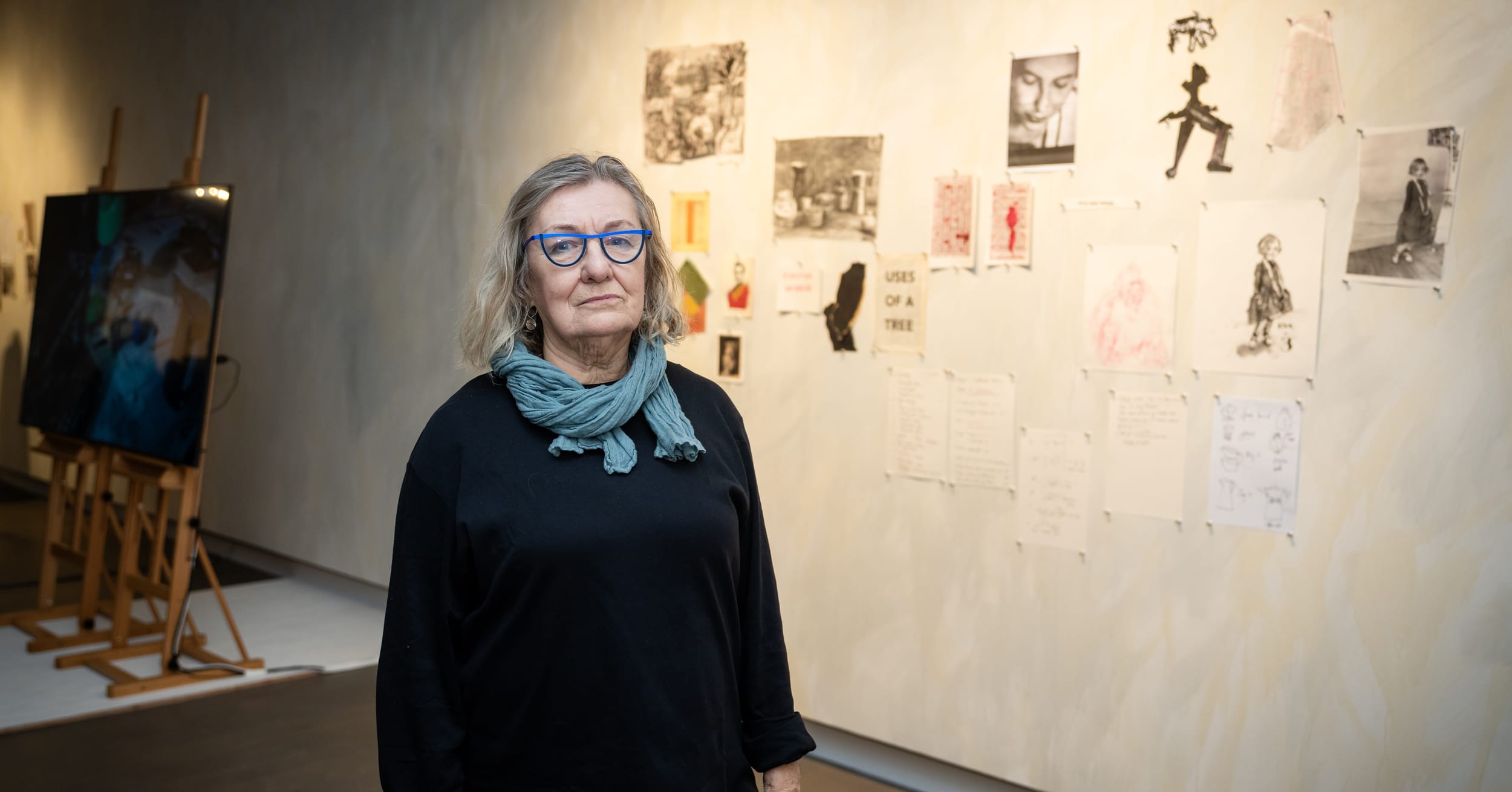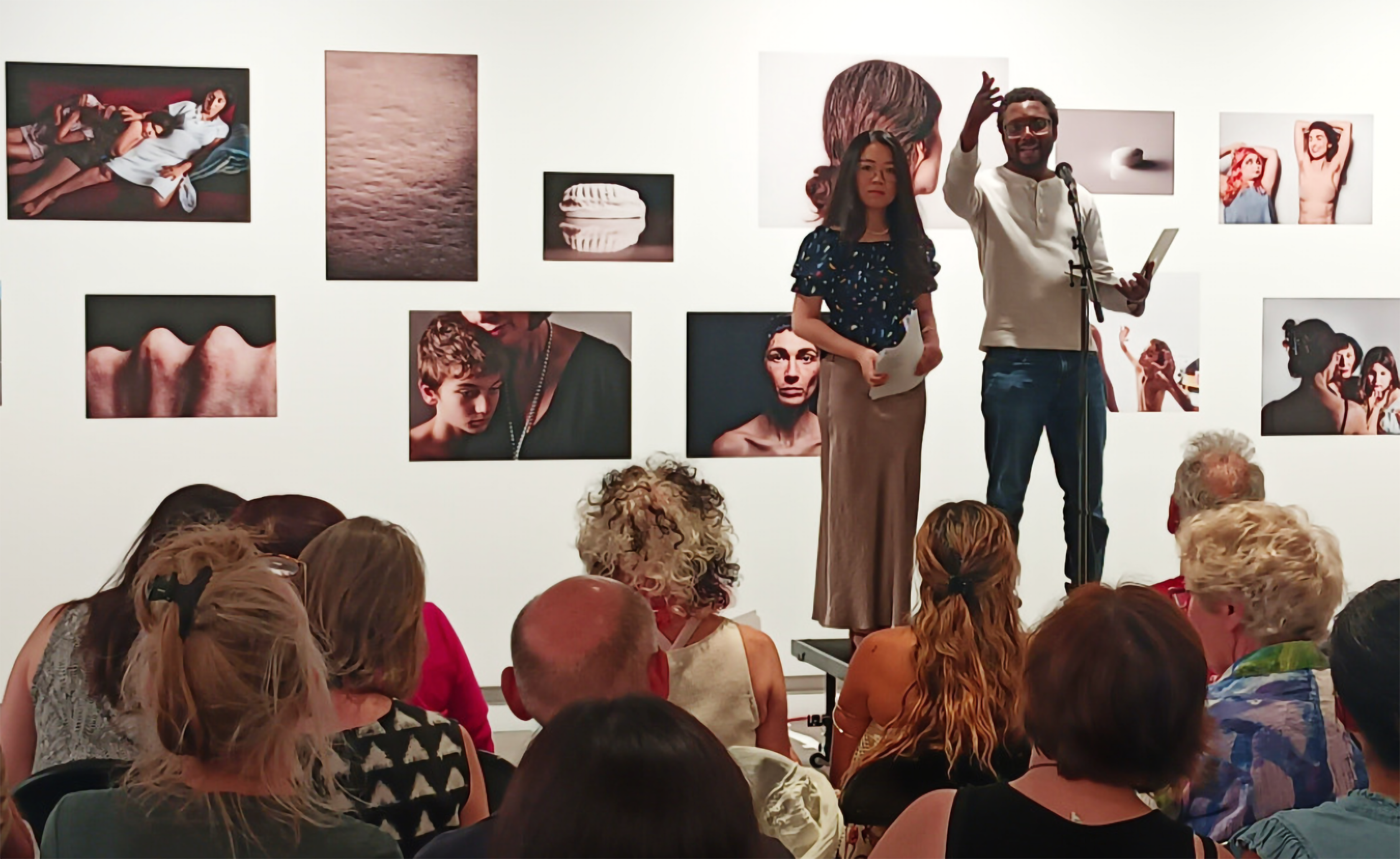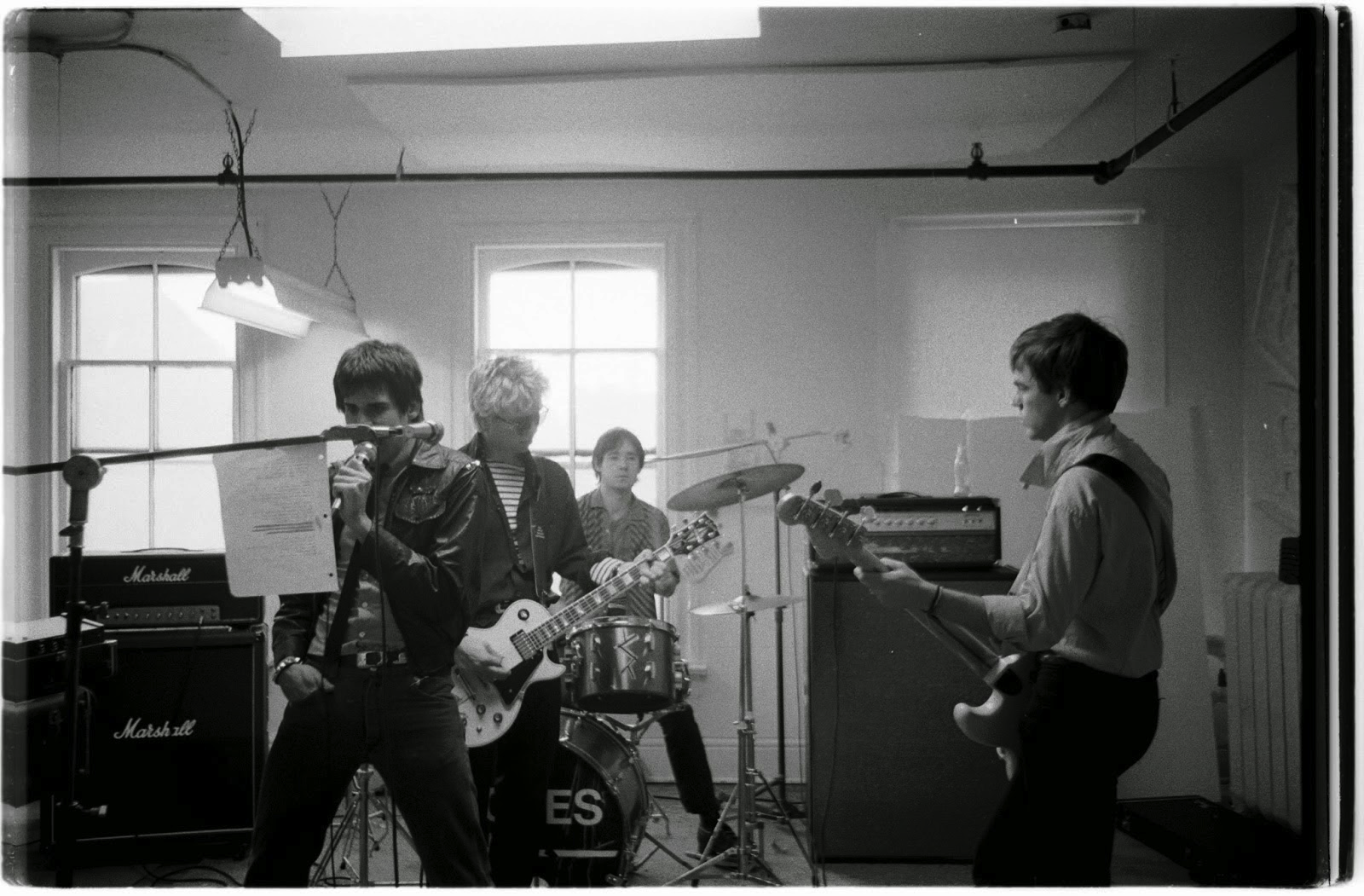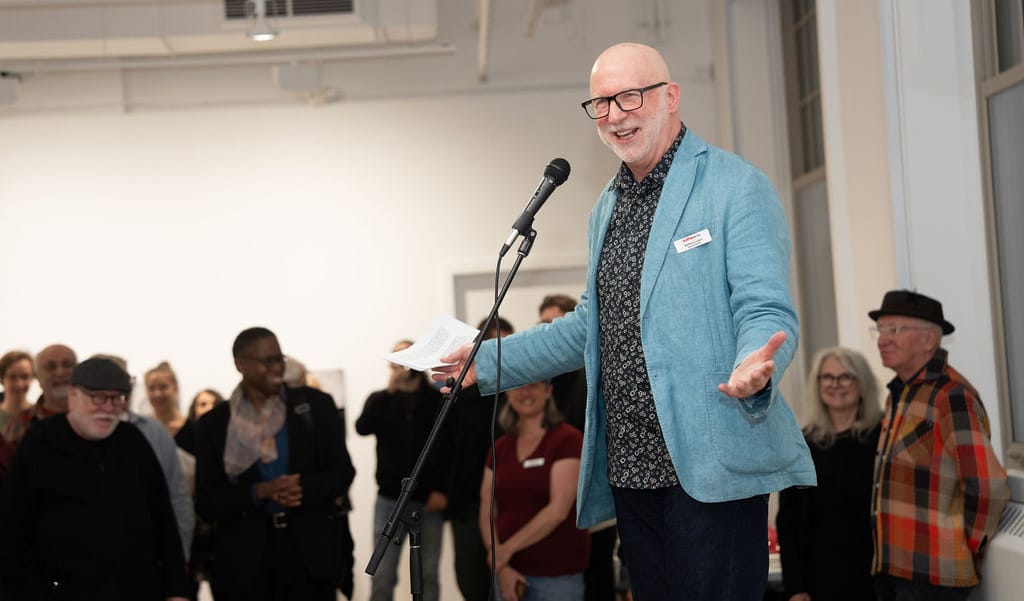Tearing Up the Script
As he approaches the first anniversary of his joining Koffler Arts as its new general director, Arcade spoke with Matthew Jocelyn about the tenuous position of Canadian arts organizations, and his vision for Koffler going forward.
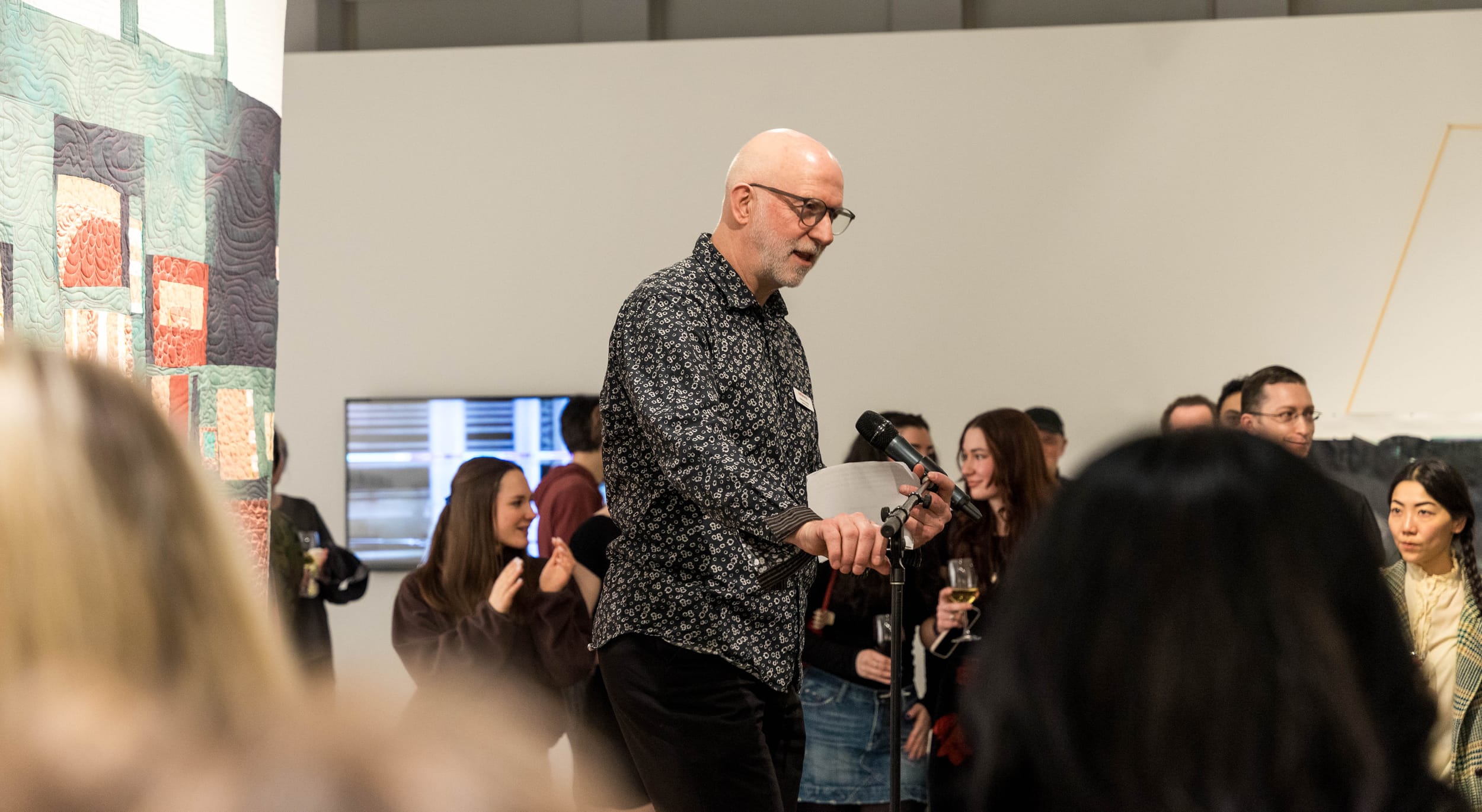
When Matthew Jocelyn first stepped into his role as General Director of Koffler Arts in the fall of 2023, it was already clear that the path ahead would be challenging. As the organization’s first permanent leader since 2021, he would be responsible not just for rebuilding its programming and vision, but redefining its place in the Toronto and Canadian artistic communities. It’s the sort of thing Jocelyn has enjoyed success with previously—in the half of his professional life where he’d call himself an arts administrator—at the Atelier du Rhin in Alsace, Opéra national de Paris, and more recently during his occasionally turbulent but always interesting time transforming Canadian Stage, as its General Director, in the early 2010s.
But things quickly got even more challenging than Jocelyn anticipated, when he began in his new position only a few days before October 7. As Koffler Arts is dedicated to exploring contemporary Jewish artistic practice within a context of broad intercultural dialogue, Jocelyn says events forced him “to ask some fundamental philosophical questions, as opposed to just getting on with the job.” Not long after, Artscape, Koffler Arts’ landlord at the Youngplace building for the past decade, announced it would be going into receivership—creating added uncertainty for the organization. The script, as Jocelyn puts it, had fallen apart.
As he approaches the first year of his tenure at Koffler Arts, Arcade spoke with Jocelyn about his experience so far, as well as his vision going forward. He had just returned from a month in Australia—which brings us to the other half of his professional life, his work as an opera librettist. Jocelyn was there for Brett Dean’s staging of Hamlet at the Sydney Opera House, for which he wrote the libretto. Other projects include his libretto for Cassandra, by composer Bernard Foccroulle, and the texts of Le Bal and Requiem, both by Argentinian composer Oscar Strasnoy.
Between getting to see his work performed in the iconic Sydney Opera House, and enjoying walks in the Tasmanian rainforest, Jocelyn had time to ponder the year that it’s been, and what’s still to come on this least expected of journeys.
The current exhibition at Koffler Arts, Botannica Tirannica, by Brazilian artist Giselle Beiguelman, certainly doesn’t lack for ambition—it’s a multi-faceted, multimedia work that came with many logistical challenges. Since it’s one of the first shows organized during your tenure, I wonder if it points any ways forward for Koffler Arts.
I’ve been very pleased by the overall response to the show, I have to say. There’s obviously been a lot of media excitement around the exhibition, and there’s the novelty of having all these elements—visual arts, sociology, botany, artificial intelligence—brought together into one subject, with erudition and beauty. It’s not a controversial show, but it has shocked a number of visitors in the way it’s revealed their own blind spots. There are ideas that carry the vehicle of systemic abuse, or systemic prejudice, or misrepresentation.
I can’t say that it’s the way forward for Koffler. It’s not as though, “Oh, this is the path.” It’s just representative of one of the things that we can do, that is perhaps unusual for a visual arts space. It’s extremely tentacular as an exhibition.
Upon arriving at Koffler, you very soon had to deal with a not insignificant issue—Artscape’s announcement that it was going into receivership. I’m sure that wasn’t something you banked on, when you stepped into the room.
Artscape is an organization which has had a strong impact on the city of Toronto, and the arts community here. Its collapse was just a reminder of how fragile or even absent the overall artistic project of this country is, reflected in the fragility of its cultural institutions and organizations. Often in Canada it seems that the place of encounter between creator and audience is so very tenuous, and undervalued from a societal perspective.
It’s true that my arrival here was concomitant with a particular tenuousness in the history of this 50-year-old organization. In Europe, where I spent many of my formative years, these kinds of buildings exist, these institutions exist. The theatres, the opera houses, the institutionalized centres of artistic research and creation. The networks are so strong, and there’s a sense of security that, for the most part, the rug isn’t suddenly going to be pulled out from under them.
The Canadian approach to artistic institutions is not of that nature, they are not thought of or treated as part of the fabric of society. We do have large institutions that are relatively anchored, such as the ROM, the AGO, or the Canadian Opera Company, but even they find themselves in positions of anxiety as to their future at times.
So while I had that very specific question of, “Oh my god, to whom do we pay our rent,” from a philosophical perspective, it can’t help but reawaken the whole question of whether or not we are legitimate. And what is it that reinforces our legitimacy? Or what is it that validates our legitimacy and our necessity?
Meanwhile, four days after my job officially started, October 7 happened. As a Jewish-Canadian arts organization that offers a creative platform for contemporary Jewish artistic practice in dialogue with a wide panorama of cultural perspectives, it forced me to ask some fundamental philosophical questions, as opposed to just getting on with the job.
What were those questions? And how, in the time since you started, have you reflected on what Koffler Arts should be from here?
The question on the one side is the legitimacy. What is our legitimacy as another arts organization in the city? And how do we reinforce that? Also, how do we not become the victims of this accidental economic bubble which was called Artscape. And then there’s the legitimacy of our project as a centre that in part examines Jewish culture within a much broader intercultural conversation.
I’d say there’s a heightened desire to continue to weave the tapestry of art within this project. There are horrors happening in many places on the planet right now. There are the horrors in Sudan, there’s the war between Russia and Ukraine, there’s the Middle East. It’s put me in a position where I’m forced to think about this a lot, and better inform myself, be more acute in my desire for understanding than I might have otherwise been.
At whatever modest and microscopic a level, it’s about offering a space of metaphor and poetry and human resilience, of joy and energy. There’s a lot of zapping of energy right now—I don’t want to say defeatism—but this sense of being overwhelmed. I think little micro bursts of energy are important, in a thoughtful, playful, poetic, aesthetic, sometimes irreverent, way.
After almost a year in the job, however turbulent it has been, does it feel like there’s a programming vision that’s starting to cohere in a way people can see from the outside?
I think it’s both a vision and a love of eclecticism. The principle of incoherence is precious to me. If people are able to wrap up what this organization does in a stock phrase or two, then I have failed. So I’m not concerned with somebody saying, “Okay, after a year we don’t understand what you're doing.” If instead they say, “Wow, there’s a lot of things happening, but what does it all lead to?” That's a much more interesting avenue forwards for me.
It’s programming in filigranes, creating a web, but the web is constantly mutating and so too is what we catch, what holds, and what we propel back into the world.
We can see that in our collaboration with the Art of Time Ensemble, coming in October, and their reenvisioning of Stravinsky’s The Soldier's Tale with a new libretto by the poet Titilope Sonuga. And also in The Journal of Hélène Berr, which we are co-presenting with the Royal Conservatory of Music as part of the 21C Music Festival next January. That’s a project I was very aware of because I had worked with the composer, Bernard Foccroulle, when I wrote the libretto for his opera Cassandra, which was staged at the Royal Opera House in Brussels.
The Journal of Hélène Berr was a piece he had written previous to our collaboration. It’s an exceptional, brutal piece of compositional writing. It’s a historic revelation based on the writings of this remarkable young woman who was writing her journal during the Nazi occupation of Paris between 1942 and ’44. And we have Rihab Chaieb, one of the world’s top mezzo sopranos today, performing. She’s singing at the Met at the same time as she’s doing our performances.
And then there’s our collaboration with the Harold Green Theatre on Chris Morris's remarkable play The Runner, in April next year. Those are some of the kinds of shows that we feel resonate deeply with Koffler’s mission and where we can help find bigger audiences. Where it’s opportune to create an even more refined artistic project.
The Runner is not without controversy—last year, the Belfry Theatre in Victoria bowed to pressures to cancel its scheduled run of the play. Was there any difficulty in your decision to program it?
There was no difficulty for me whatsoever in the decision to program it, though it was the Harold Green Theatre that took the initiative and we were delighted to join forces with them to support this seminal piece of theatre. As in many cases, there are a lot of imprecise readings about the nature of this project. I think the cancellation of The Runner was the result of imprecise readings of what the text is, and what the story is—just how intelligently and movingly Chris goes into the complexities of a microcosm within the Israeli–Palestinian relationship. And he does it with acumen and heart. Human beings are divided between our seemingly endless contradictions—and Chris’s theatre is a courageous and necessary attempt not to make these contradictions appear banal.
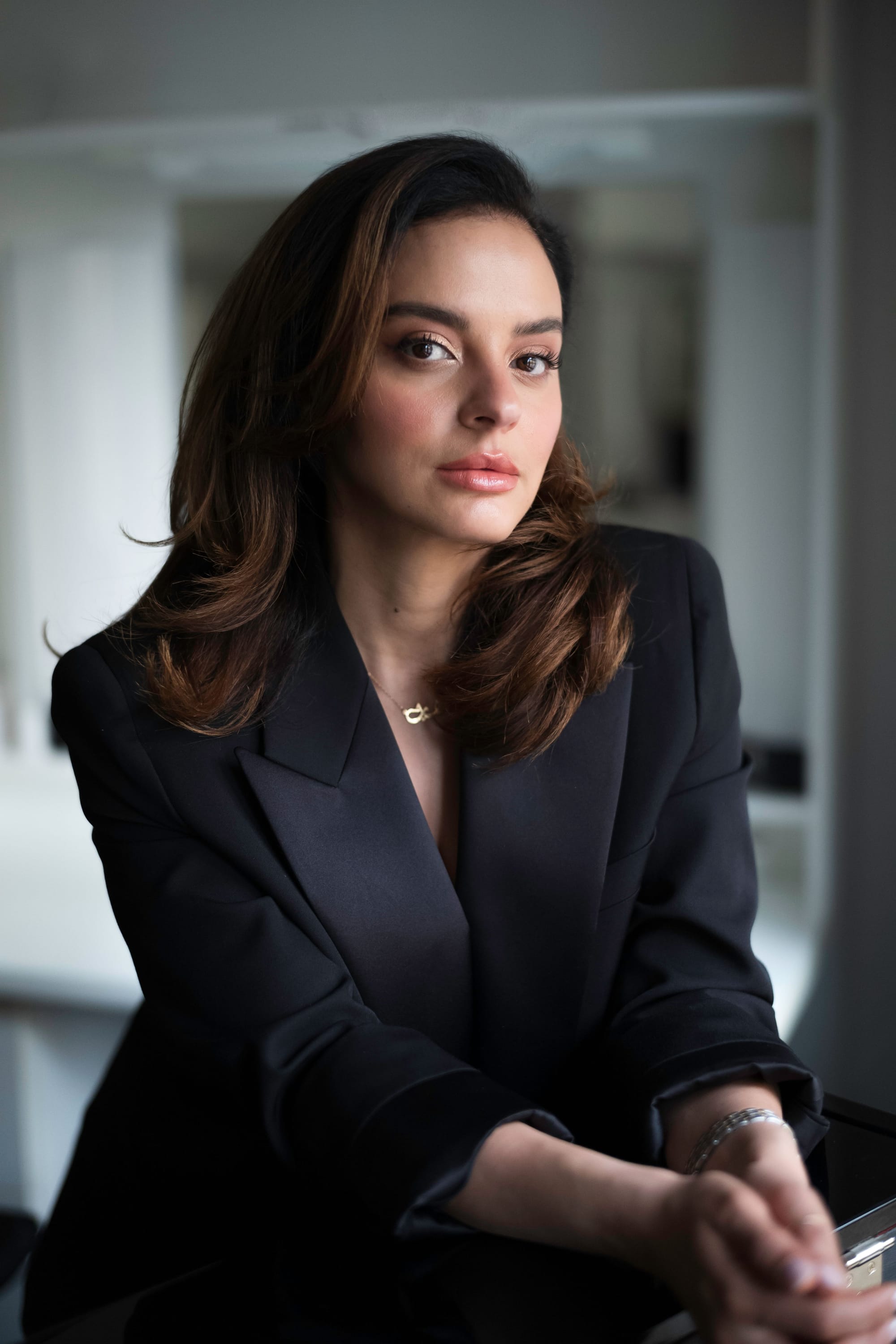
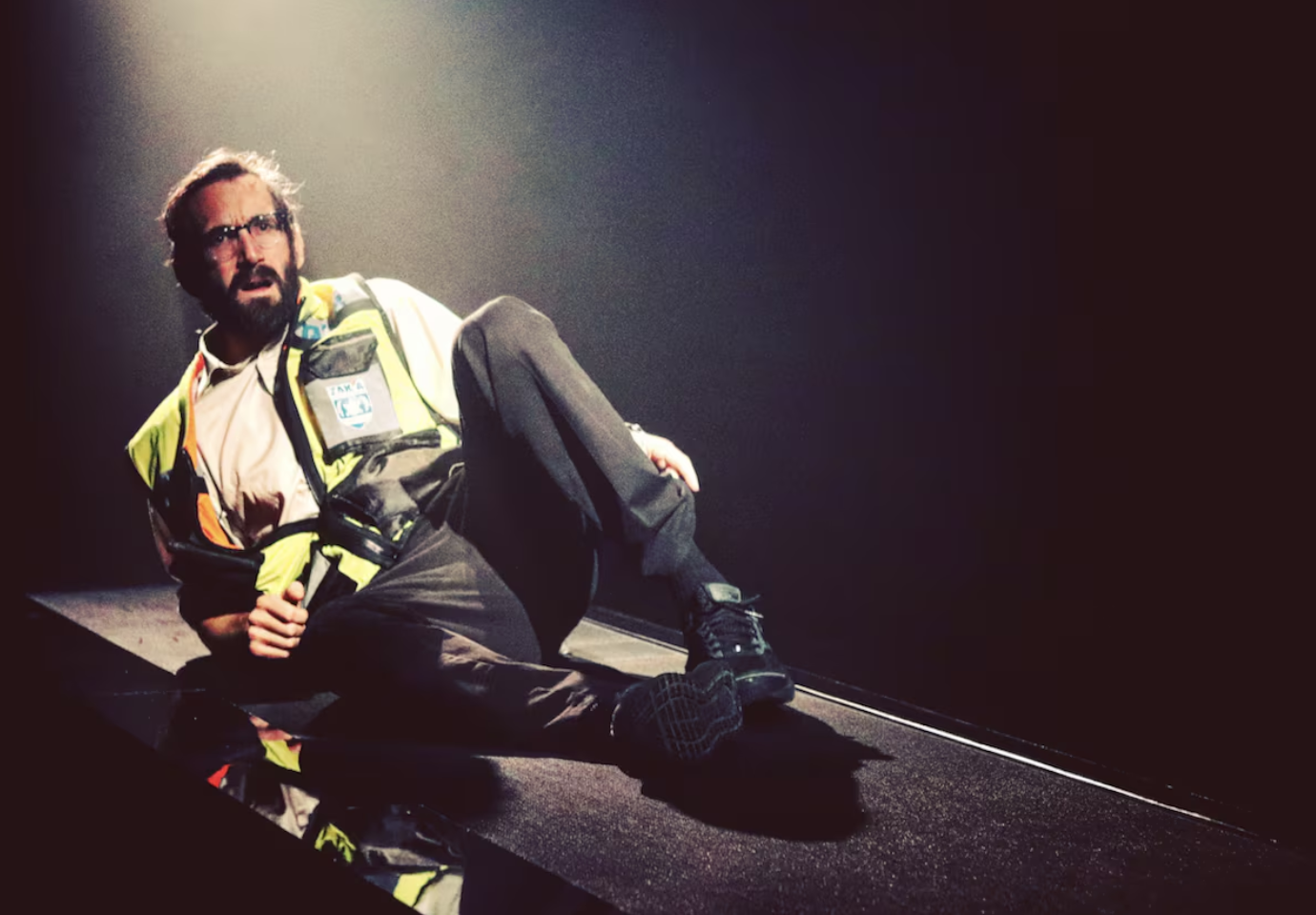
Left, mezzo-soprano Rihab Chaieb, who will be performing in the chamber opera The Journal of Hélène Berr, as part of the 21C Music Festival next January. Right, Gord Rand in Human Cargo’s 2023 production of Christopher Morris’s The Runner.
“Imprecise reading” is an interesting notion to sit with for a second. One of the barriers in trying to be artistically bold at an institutional level, particularly at a time like this, is to make decisions based on the fear of how something might be read, and the imprecision of how things will be reacted to.
I wrote to a colleague this morning, because we were having a conversation about this kind of thing. I told them, “My job is to open doors, not to shut them.” It sounds really simplistic, but it’s really what I consider my job to be. But sometimes imprecise readings are slightly larger than the door sill, so they block it.
Conflations can become inflations, and they balloon. My job isn’t to deflate from a political perspective, but to try and find a way so things can get into the room.
The first new exhibition to open at Koffler Arts during your tenure was Decade, a group show featuring many of the artists with studios in the Youngplace building. What did you hope to achieve with the show?
Bringing all these artists together in the same space has already somehow changed the dynamic of our building. And we wanted the show to have a galvanizing effect, celebrating the building as a place of artistic creation. And one senses that there's a fluidity of dialogue now going on.
Ironically, that dialogue has been helped by Artscape’s demise, because a lot of us began talking to each other about what we do going forward. That, for me, is a fundamental starting place, anchoring yourself with the people nearest you, creating a little bloc, and figuring out how we all survive together. Koffler Arts has a real role to play even just within Youngplace, helping it to feel like a community again. It's something that we can contribute to in a proactive way because we have the space and because we have desire.
Fortunately, the tenants affected by Artscape’s receivership have worked together to come up with a solution whereby, if it works out, no tenant who wishes to stay in the building should have to leave. However, for the moment, we don’t have any solid guarantees because we’re not in control of the sale process. This despite all the goodwill in the world, and a real collaborative spirit and considerable support, I have to say, from the federal and municipal governments.
Koffler Arts is an organization with a long and storied history, but in many ways it’s starting over because of the shutdown. There’s a need to build again. What does that take, and how do you see the responsibility for that?
What I’m seeing is potential, I’m not seeing a scar. I’m not starting from a place of scar tissue, I’m starting from a place of extraordinary potential. I have unwavering belief in the potential of the organization to play a fundamental role in the artistic landscape of this city.
How do your past artistic leadership experiences shape your thinking now?
My history as an institutional director is, fortunately or unfortunately, one of transforming institutions. When I came back to Toronto to work at Canadian Stage, it already had a very clear definition, which was as a place that did primarily Off-Broadway and Broadway shows in their Canadian iterations. It did very fine work of that nature, but it was a standard theatre. Even when I was being interviewed there, I said, I don’t know how to do that, and frankly I don’t want to learn. But if you are interested in what I can offer as a leader, I want to turn this place into a contemporary, pluridisciplinary art centre for theatre, dance, and crossover projects with visual artists. Something that is going to position us alongside the great international multidisciplinary performing arts centres.
And that eventually happened, within the means of that organization, working with artists and creative partners from around the world. Lots of new audiences started coming to Canadian Stage. It was a really exciting period for all of us who were there at that time.
My main limitation is if I don’t believe in it, then I can’t do it. If I don’t believe that the art is great, that the originality of it is pertinent, then I can’t do it. As an artistic director, I program what I want to see. And if it’s the sort of work that I can’t see elsewhere, then I’m going to do it twice as hard because I love it.
Take us five years forward in this.
In five years my primary goal is that Koffler Arts still exists. That the organization has found new footing, that it's connecting again with audiences in a meaningful way. For me that's enough, to have people say that it’s part of their cultural menu. In an ideal scenario, we've got a secure, vibrant space that’s a destination for people. And that Koffler is recognized as a partner for arts organizations both across the country and internationally as a place where great art is being made.


